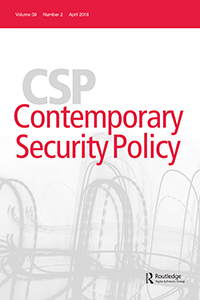My latest paper has been published by Contemporary Security Policy. You can access it online here and in pdf. I reproduce the abstract below.
There is a growing consensus that multinational military operations are often less effective than the theoretical sum of their constitutive parts. Multiple chains of command, restriction on intelligence sharing, and capability aggregation problems can reduce fighting power. However, partners may be necessary to provide legitimacy to an intervention. As such, most studies assume that the state leading a coalition (usually the United States) has to accept a degree of operational ineffectiveness in order to gain political benefits from the participation of junior partners to a multinational military operation. However, such analysis puts all junior partners under the same category, without taking into account the differentiated contributions of those junior partners based on their relative military power and international status. This article explores variation between the junior partners’ contributions and their impact on coalition political and military dynamics. It teases out the implications of adopting a fine-grained analysis of junior partners.


